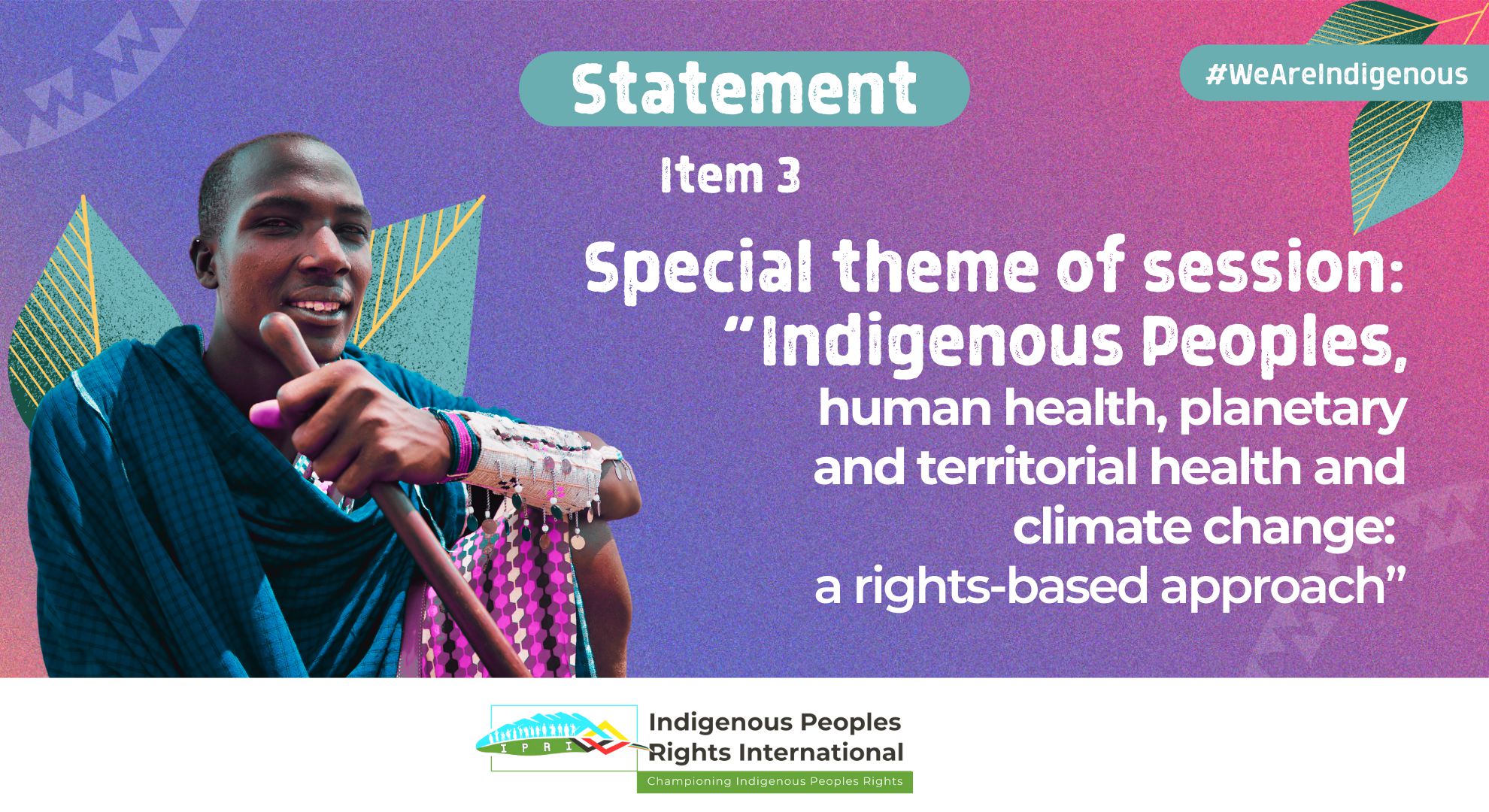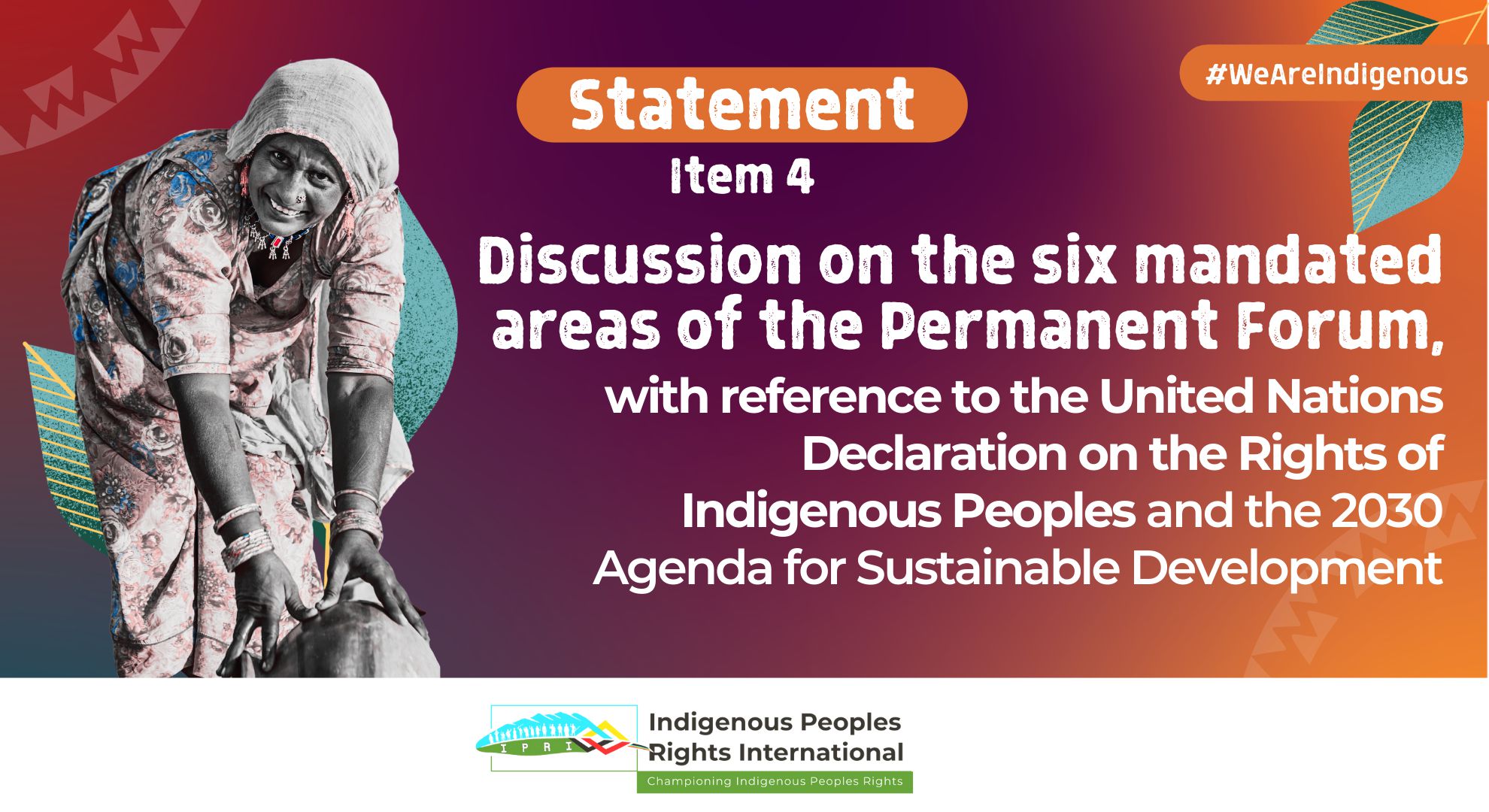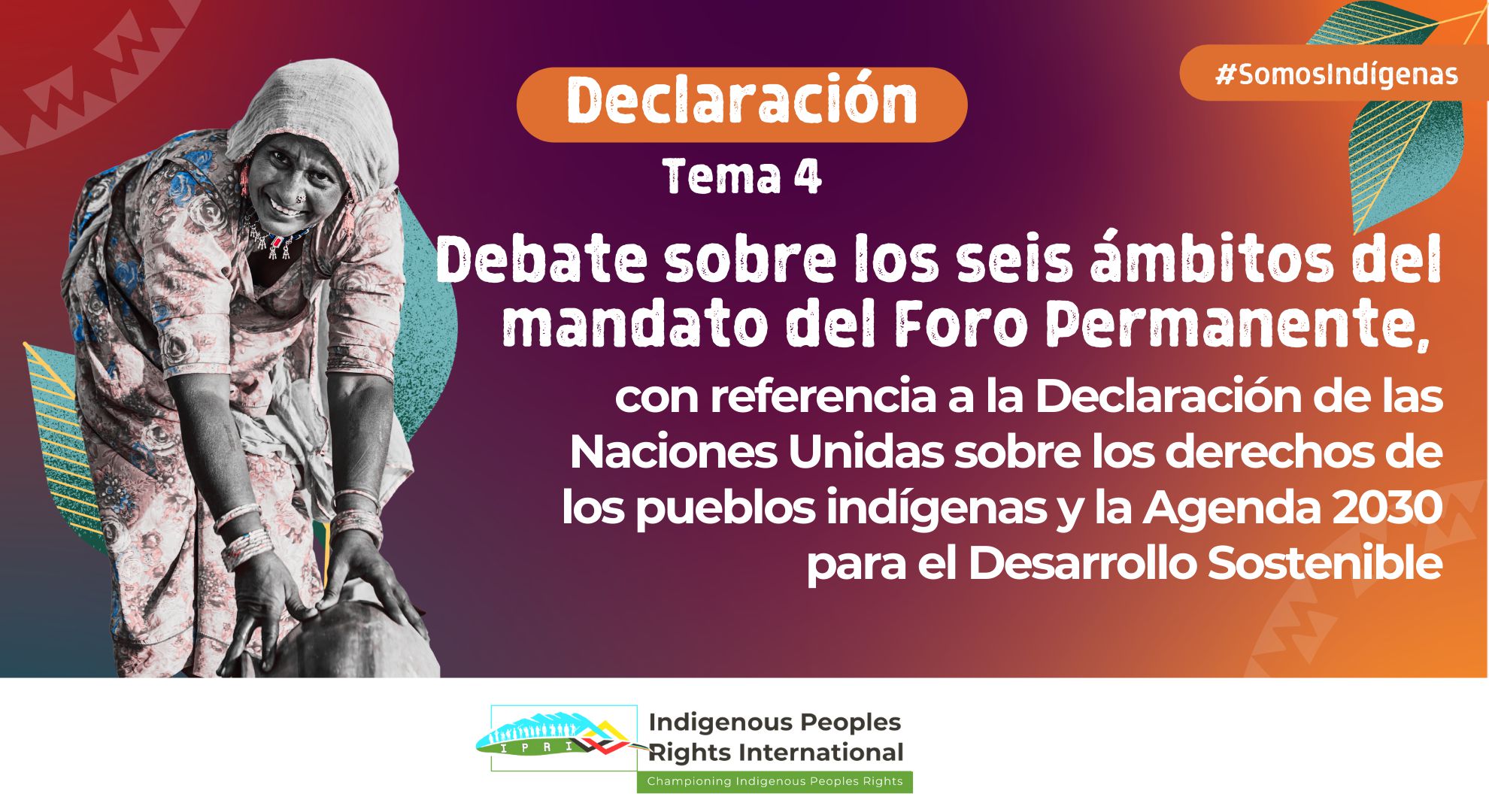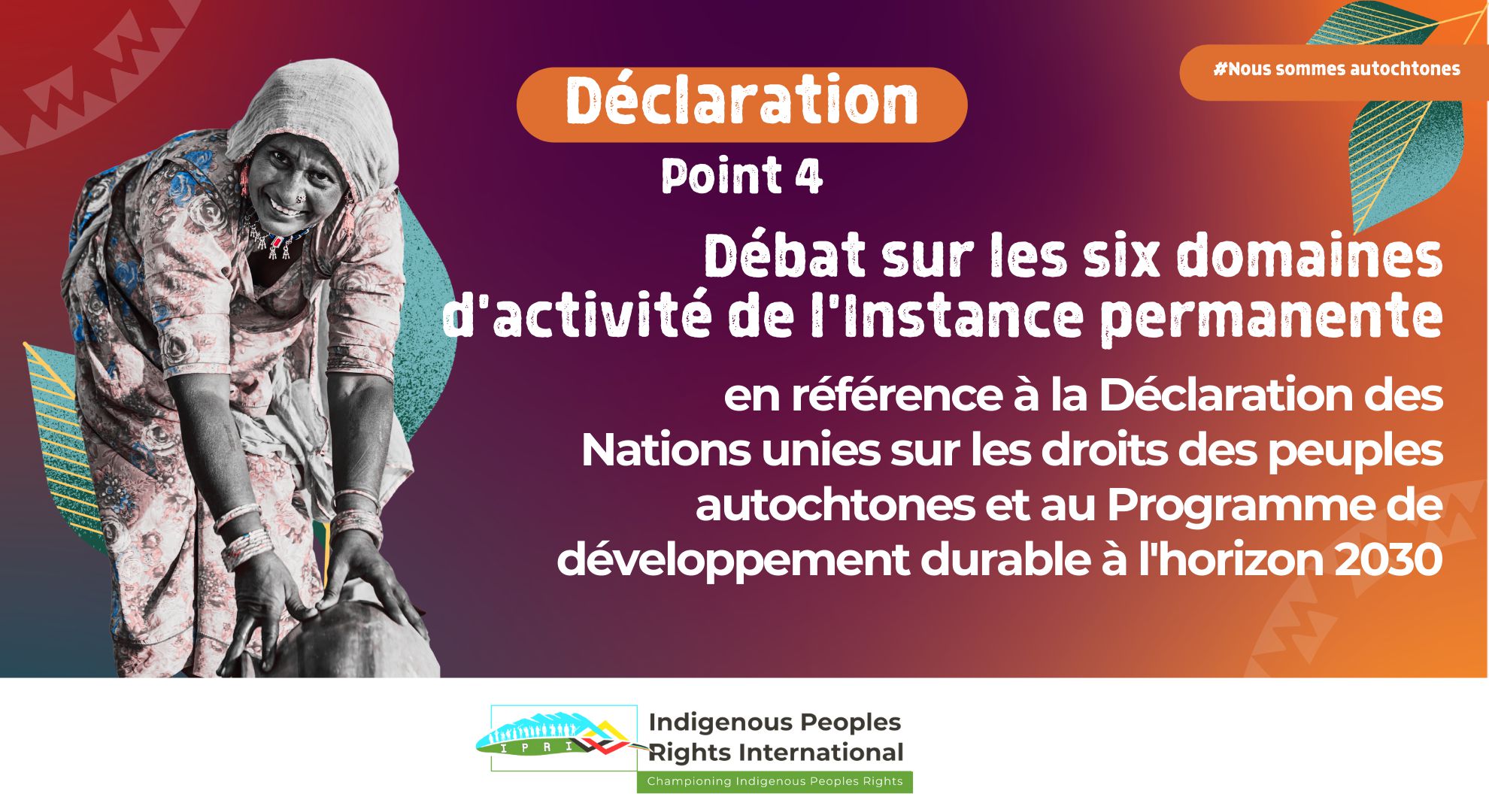Statement by Indigenous Peoples Rights International (IPRI)
Speaker: Rukka Sombolinggi
Indigenous Peoples Rights International (IPRI) would like to comment on the risks and opportunities and provide recommendations with regard to this year’s Special Theme of the Permanent Forum in two main areas in the context of climate change: conservation and the just energy transition.
First, we commend the Permanent Forum for putting Indigenous Peoples’ rights at the core of the discussion of human health, planetary and territorial health. Considering the latest global agreements such as the Global Biodiversity Framework (GBF) and the urge to address the climate crisis, through global efforts such as the Just Energy Transition, it is imperative to assess the risks and explore the opportunities these measures entail.
In advancing IPRI’s mission to put an end to criminalization, violence and impunity against Indigenous Peoples, we are deeply concerned on the implications of the implementation of the energy transition and biodiversity conservation targets if our rights are not protected legally and secured.
The GBF includes among its targets and milestones the conservation of 30 percent of land and sea by the year 2030 to reverse the environmental destruction and catastrophic biodiversity loss throughout the world. As it is well known, Indigenous Peoples maintain 80% of the world’s ecosystems in their territories. Additionally, our traditional territories comprise approximately 20% of the world’s land surface. Of this, 83% (23 million km2) lies outside of protected and conserved areas that are governed by States or private actors. Therefore, at least 17 percent of the world's land is conserved uniquely by Indigenous Peoples outside of State- and privately governed protected and conserved areas.
While we commend states for their commitment to conserving 30% of land and sea by 2030, we are also very concerned about how this target will be implemented. In spite of our rights to our lands, territories, and resources affirmed under international law and us being custodians of vital ecosystems that are inter-related, IPRI has documented numerous cases of criminalization, violence, and impunity against Indigenous Peoples in fortress conservation approach by States, big conservation organizations, and the private sector. For instance, we have supported our Maasai sisters and brothers in the profoundly grave situation faced by approximately 100,000 Maasai pastoralists in the Loliondo area of Tanzania, who are being forcibly displaced by the State from their traditional lands for the creation of a 1500km2 game conservation area to be managed by a private business from the UAE.
Moreover, in relation to the just energy transition as a means of addressing the climate crisis, many renewable energy projects imposed upon us are threatening our collective rights to lands, territories, resources, and water bodies; to our livelihoods and for food security; and the protection of our cultural integrity among others. The energy projects being implemented without our effective participation in decision making including the conduct of FPIC include wind, hydropower, biofuel, geothermal, solar, and wind farms as well as mining of transition minerals, such as cobalt, lithium, copper, manganese, nickel, and zinc, needed to produce renewable energy technologies – from wind turbines to solar panels to electric vehicles.
It is expected that to fulfil the needs for these transition minerals, their supply must be increased six-fold by 2030. Therefore, the trends in rights violations and criminalization from the extractive sector will, without a doubt, increase exponentially in the near future with more than 50% of the remaining transition metals in Indigenous Peoples’ lands and territories.
The current climate crisis and the global efforts directed at preventing it can provide an opportunity for upholding our collective rights to self-determination and to our lands, territories, and resources. As Indigenous Peoples, we have demonstrated our effectiveness in safeguarding nature through our reciprocal and multi-layered relations with it.
We recommend to the Permanent Forum to:
Call upon states to review its policies and laws on conservation and protected areas towards fully aligning these to the recognition and protection of the rights of indigenous peoples instead of their criminalization especially in the practice of their sustainable livelihood practices and traditional occupations.
Call upon states to position human rights and social equity at the core of their climate plans to realise the goals of the Paris Agreement. This includes legally recognizing and upholding Indigenous peoples’ collective and individual rights, rooted in respect for our right to self-determination, to lands, territories, and resources, and to cultural integrity.
Call upon states to regulate the activities of corporations relating to the just transition or so-called green economy to ensure the proper conduct of human rights due diligence including the requirement for the Free, Prior, and Informed Consent of affected Indigenous Peoples. Further, an equal benefit-sharing agreement shall be ensured if affected indigenous communities wish to be engaged in partnerships based on their consent and effective participation in decision-making the whole project cycle.
Call upon states and the private sector to establish effective redress mechanisms l to address historic and ongoing violations due to the creation of protected areas, and extractive projects, as well as measures to protect them when defending rights
Call upon states to ensure the effective participation of Indigenous peoples to engage in decision-making on climate mitigation and adaptation approaches and action plans and for Indigenous-led solutions to be supported and adequately resourced.





